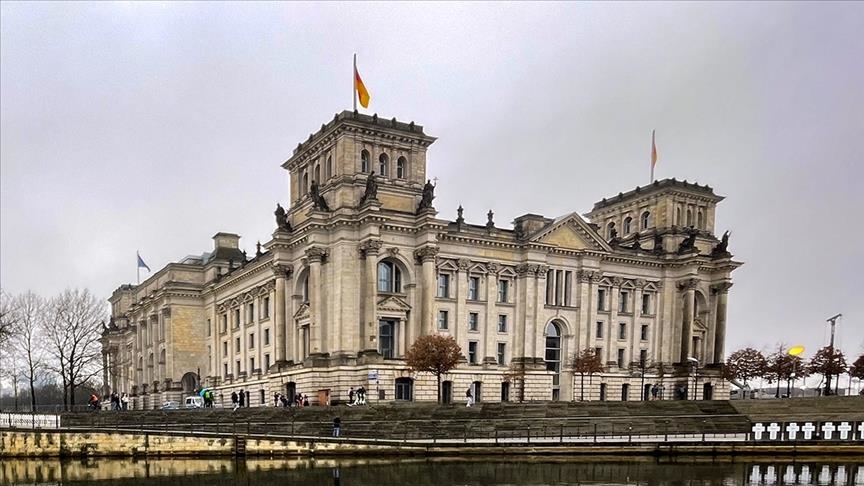INTERVIEW – Germany’s climate action path faces policy and reforms challenge
Germany has made progress in renewable energy, but its green transition faces challenges of slow advancements in transport and industry, along with controversial policy decisions

- ‘While there have been some advancements, sectors like steel and chemicals have not moved quickly enough toward low-carbon solutions like green steel,’ says Bill Hare, CEO and senior scientist at the Berlin-based Climate Analytics institute
ATHENS
Germany, long regarded as a pioneer in climate action, faces mounting challenges in meeting its environmental commitments, casting doubt on its ability to reach its 2030 goals and align with the EU’s ambitious 2040 emissions reduction targets.
Despite recent progress in renewable energy, slow advancements in transport and industry, along with controversial policy decisions, highlight the complexities of Germany’s green transition.
Bill Hare, CEO and senior scientist at the Berlin-based Climate Analytics institute, told Anadolu that Germany has failed to move quickly enough, jeopardizing its ability to meet the EU’s 2030 climate and energy framework.
“In the renewable energy sector, Germany’s account is rather mixed. Its feed-in tariff law two decades ago sparked a global renewable energy surge, following Denmark’s lead. However, progress stalled over the past decade due to slow wind and solar rollouts,” he said.
“Having said that, recent years have seen some improvement, with the government addressing barriers to renewable energy, especially offshore wind, and accelerating grid connections from the wind-rich north to the industrial south,” he explained.
Hare emphasized that the automotive sector, a critical pillar of Germany’s economy, has significantly underperformed, particularly regarding the transition to electric vehicles (EVs).
“The infamous Volkswagen emissions scandal in 2015 highlighted efforts to circumvent EU emissions standards, reflecting a broader reluctance to decarbonize vehicles. This slow pivot has left German carmakers vulnerable to competition from Chinese manufacturers, who have scaled up EV production rapidly,” he said, adding that this delay now fuels pressure to weaken EU CO2 emission standards for vehicles.
Progress in industrial decarbonization, another crucial area in Germany’s climate strategy, has also been slow, according to Hare.
“While there have been some advancements, sectors like steel and chemicals have not moved quickly enough toward low-carbon solutions like green steel. Instead, there’s still reliance on carbon capture and storage, which is less effective and delays true decarbonization. The narrative is one of progress, but consistently too slow to align with global climate goals or Germany’s own targets,” he remarked.
New government’s policies
Hare also raised concerns regarding the climate action approach of the current coalition government led by Chancellor Friedrich Merz.
“The first concern is at the EU level, where the government’s position remains ambiguous regarding the target of reducing carbon emissions by 90% by 2040 compared to 1990 levels,” he remarked.
He further cautioned that Germany’s advocacy for international carbon credits under Article 6 of the Paris Agreement risks creating loopholes rather than achieving genuine emissions reductions.
“Past experiences with international credits in the EU Emissions Trading System (ETS) led to market crashes and ineffective outcomes, suggesting this approach could undermine progress,” Hare warned.
While welcoming the government’s pledge to scale up solar power and renewable energy, Hare criticized the proposal to build 20 gigawatts of gas power capacity as unnecessary and contradictory to Germany’s decarbonization objectives.
“Gas infrastructure and carbon capture increase power prices, countering the cost benefits of renewables, which lower electricity costs when scaled effectively. High power prices are a critical issue for Germany’s industrial competitiveness, and this move could exacerbate the problem,” he elaborated.
Hare also pointed to the government’s decision to abolish the heating law as another setback, arguing that it risks locking in costly oil and gas heating systems, thus delaying essential electrification efforts to reduce building emissions.
On the positive side, he noted the government’s commitment to increased investment in rail infrastructure, which is crucial for reducing transport emissions, and the allocation of approximately $10 billion for energy efficiency improvements in industry and households.
He also mentioned that reintroducing EV incentives would support both the German automotive sector and the overall green transition.
Achieving a just green transformation
Hare stressed that Germany’s core issue is its economic and social transformation, which he described as poorly managed.
The shift from internal combustion engines – supported by a century-long ecosystem of suppliers and skilled workers – to electric vehicles has not been handled well, leaving small and medium enterprises, essential to Germany’s manufacturing base, vulnerable without sufficient support for retooling and retraining, he argued.
“This unpreparedness has fueled political resistance to rapid decarbonization, as the socioeconomic impacts are significant. Germany’s political system has long recognized these challenges but has avoided tackling them head-on, leaving the country in a difficult position,” Hare said.
Additionally, Hare highlighted growing competition from China, which has emerged as a leading power in green technologies, noting that coordinated government action at national and EU levels is necessary to address this substantial challenge.
Reflecting on the broader EU approach, Hare expressed optimism, emphasizing the bloc’s history of overcoming complex challenges, such as those faced in the Eurozone and Schengen area.
“The Green Deal, if sustained, could drive competitiveness in high-tech sectors while addressing social inequalities, which fuel populist movements. Germany’s role as a major EU player makes its commitment to this vision critical,” he said.
According to Hare, the next four years will be decisive, with political leaders under pressure to deliver policies that balance environmental, economic, and social priorities effectively.
“Failure risks deepening inequality and strengthening far-right movements, threatening democratic stability,” he warned.
“Without addressing inequality and ensuring equitable economic transformation, populist backlash could derail climate and economic progress, making the social dimension of the green transition as critical as technological advancement.”
Anadolu Agency website contains only a portion of the news stories offered to subscribers in the AA News Broadcasting System (HAS), and in summarized form. Please contact us for subscription options.







